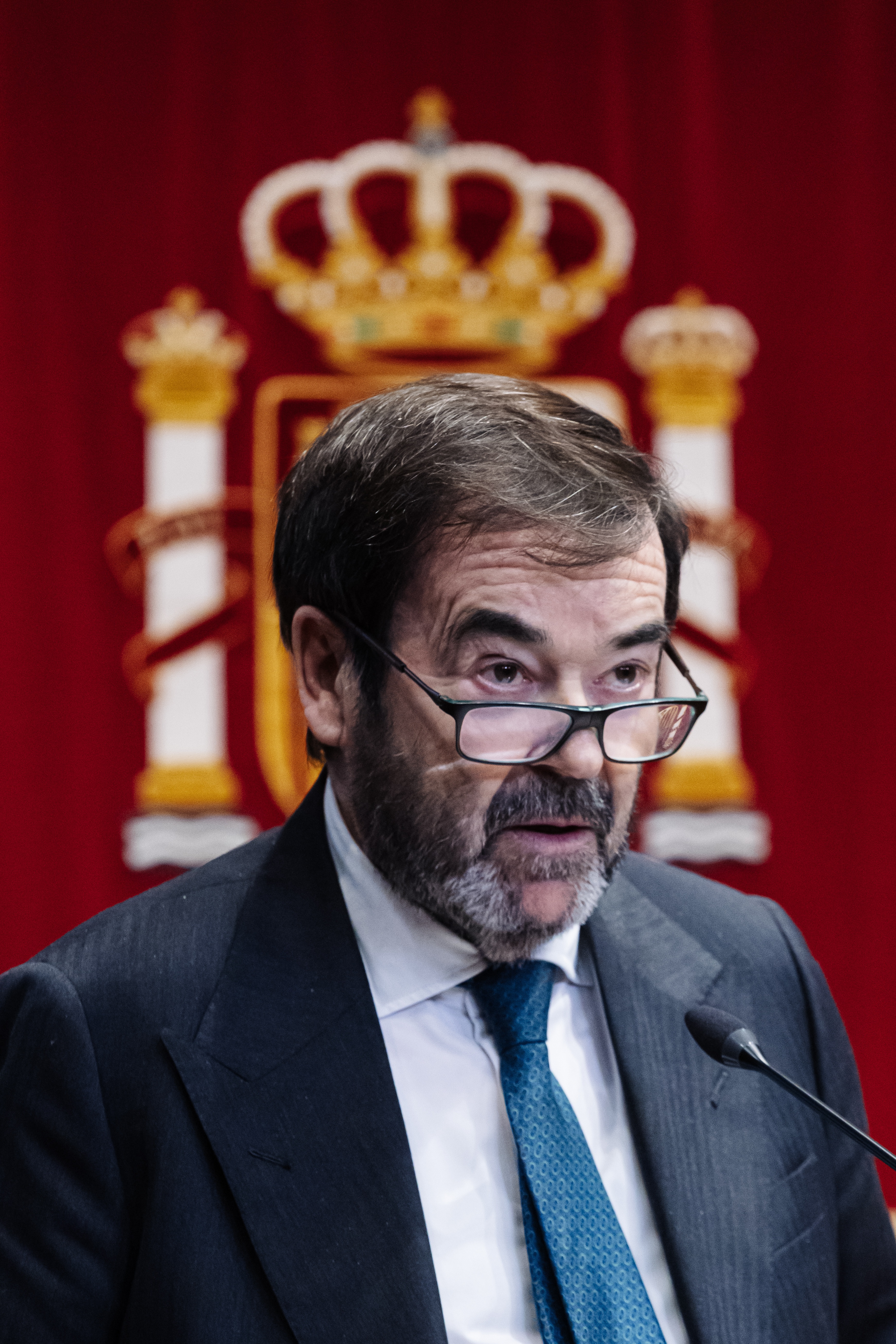The Spanish judiciary has demanded that documents like the files on the state's Pegasus espionage should retain their classified status, after the recent call by Catalan president Pere Aragonès for a full explanation of the state's use of the programme to spy on him in 2019. While speaking at a prizegiving this Wednesday the interim president of the General Council of the Judiciary (CGPJ), Vicente Guilarte, took the opportunity to ask the Spanish government not to promote "disagreements by declassifying, for their spurious dissemination", documents such as those related to the use of spyware by the National Intelligence Centre (CNI).
It was on Tuesday that Spanish justice minister, Félix Bolaños, explained that if a judge "asked for declassification of a document and it did not affect national security," they would proceed to do it. "There is a public commitment from the Spanish government that has existed for a long time and it is that, in this matter, absolute transparency. With a clear conscience and for the sake of clarity, we will declassify what the judges ask of us, although national security will take precedence", said the minister.
Vicente Guilarte (acting president CGPJ): "I pray that we are not called to extravagant commissions."
It is in reaction to these statements that Guilarte affirmed this Wednesday that it is in the hands of the Spanish government "not to encourage disagreements by declassifying, for their spurious dissemination, facts completely out of the context in which they arose". According to sources in the judiciary consulted by Europa Press, the interim president of the judges' governing body was referring to requests for declassification by others, such as those of political parties, and not to those made in the judicial sphere.
As well, Guilarte asked that judges not be called to the parliamentary commissions of inquiry created following the investiture pacts to investigate whether there was lawfare in the cases affecting the Catalan independence movement. In fact, he asserted that these commissions of inquiry are "extravagant" and once again called for a "lowering of the tension" around the judiciary in order to "keep turning the page so as to foster a much-needed harmony" - referring to the accusations made by the spokesperson of Together for Catalonia (Junts) in the Congress of Deputies, Míriam Nogueras.
Addressing Nogueras
"I pray that we are not called to extravagant commissions. I understand that this also turns out to be the ministerial view, because yesterday we heard from the minister [Bolaños] that judges are not obliged to attend investigative commissions, and that their attendance would be of no use," he recalled. Thus, he praised the recognition "without hesitation" of the "inappropriateness" of such calls to judges to explain their "jurisdictional procedure" in certain cases. "These well-spoken words are welcome," continued Guilarte in his lofty rhetorical style, adding that, if they had been stated "in another time and setting", it might have avoided "the expression of the disturbing anglicism [lawfare] in any document. And, no doubt, we would have been spared the tensions we have experienced. Please, do not disappointment me", beseeched the head of Spain's judicial governance organ.
He also dedicated a few words to Míriam Nogueras: "We are not indecent, I would like not to hear that again, since those words showed an infinite contempt for the very dignity of people by designating those who have done nothing but comply with the demands of an established constitutional order in which, it seems, there are those who do not believe in it, but who use it to sow discord". He did add that all parliamentarians deserve "the most absolute respect", but also pointed out that "when from the platform that the state provides them to defend their proposals they despise us, insult us, aggravate us and offend us, they are offending a large majority of people who have placed their trust in the judicial system."

